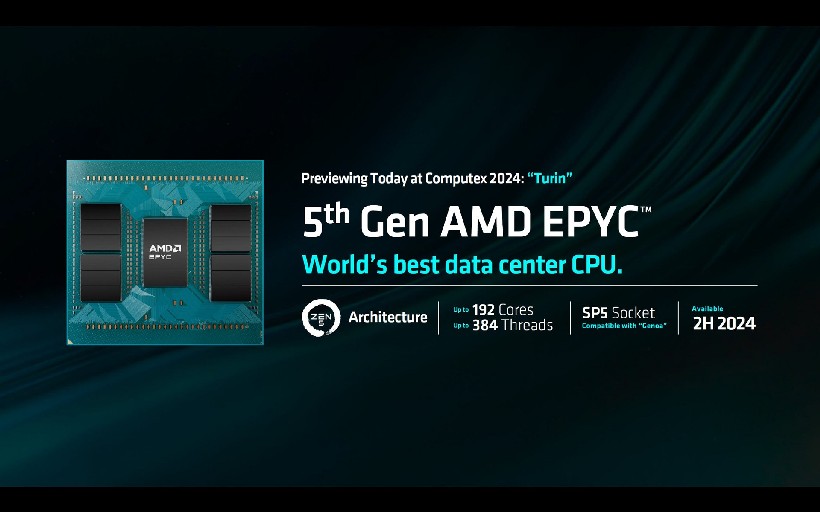AMD EPYC 5th generation server processors have up to 192 Zen 5c cores
15.10.24
AMD has officially introduced the next-generation EPYC processors, codenamed Turin, which are based on the new Zen 5 architecture and offer a significant increase in the number of cores. This solution makes the new processor family a powerful option for server and cloud computing, supporting existing platforms for the EPYC 9004 series processors with SP5 socket.
EPYC 9005 processors are presented in two main categories:
- Turin – processors with up to 128 cores based on the Zen 5 architecture and 512 MB of third-level (L3) cache memory.
- Turin Dense — processors with up to 192 cores based on Zen 5c and 384 MB of L3 cache.
Both lines support multi-threading technology (SMT), work with DDR5 RAM in 12-channel mode with the possibility of installing up to 6 TB of memory per socket. The power consumption of these processors can reach 500 W.
One of the significant advantages of the new EPYC processors is compatibility with existing platforms based on the EPYC 9004, which makes the transition to the new generation less expensive for companies. AMD also points out that their EPYC processors are used in more than 350 OEM platforms, and their market share has increased to 34%, which shows the growing confidence in these solutions in the server industry.
Don't miss interesting news
Subscribe to our channels and read announcements of high-tech news, tes
Samsung Galaxy A36 and Galaxy A56 – flagship features for everyone

The Samsung Galaxy A36 and Galaxy A56 have equally good displays, large batteries, and support for software updates for 6 years. Let’s talk in more detail about what else makes them interesting.
Hyundai has developed a built-in fire extinguishing system for electric vehicle batteries development Hyundai
Hyundai Mobis has introduced a development in the field of electric vehicle safety – a battery system capable of localizing a flash at the level of an individual cell.
ASUS GeForce RTX 5060 Ti is presented in TUF Gaming, Prime and Dual modifications Asus GeForce RTX videocard
The GeForce RTX 5060 and RTX 5060 Ti models from the Asus TUF Gaming and Prime series use a three-fan cooling system.


